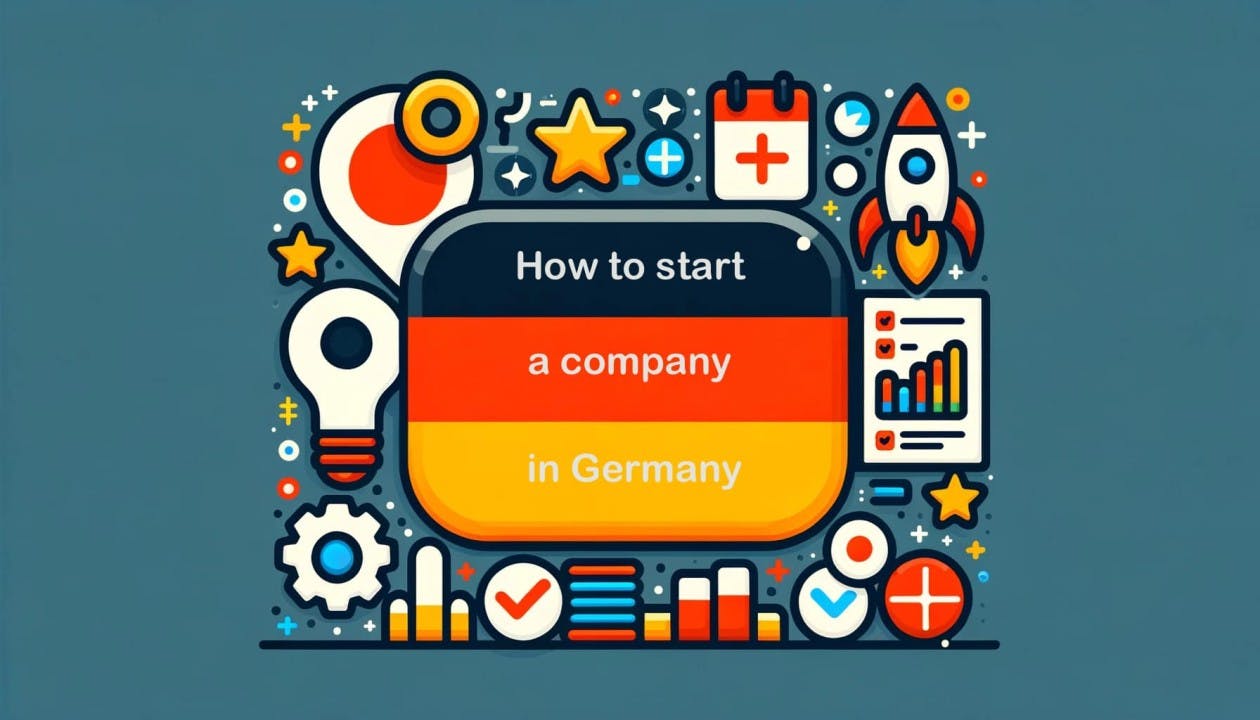How to start a company in Germany - bureaucracy checklist 🇩🇪
Starting a business in Germany is an exciting bureaucracy adventure and a great learning opportunity how to print, fill out and scan documents 💼🚀
In the past 5 years I started four different businesses. It was always the same struggle which took weeks to months. Here are 20 key points I considered before sending the first invoice. 👇

- Capital: Set aside a total of €25,000 for GmbH (limited liability company). Other options are possible and up to your personal needs.
- Articles of Incorporation: Partner with a notary to draft your company’s articles (usually 1-2 weeks).
- Bank Account Setup: You need a corporate bank account for depositing your capital. Your initial Bank account name will have the suffix iG for "in Gründung" (in founding).
- Notarisation and Capital Deposit: Deposit your share capital, which your notary will verify.
- Commercial Registry Entry: Register your company in the commercial registry to legally commence business operations. Hopefully your company will be accepted.
- Company is registered: Don't forget to inform your bank about the registration to get rid of the iG suffix in your bank account name.
- Beware of Scams: Disregard scam letters that mimic official requests for payments. You will get dozens of them.
- Transparency Register Registration: Ensure your company is listed in the transparency register.
- Local Trade Office Registration: Register your business with the local trade office.
- Tax Office Registration: This step is crucial for obtaining your tax ID and VAT number.
- Official Business Address: Rent an office if you need an official address other than your home, as P.O. boxes are not accepted.
- Insurance: Secure the necessary company insurance.
- Accounting Software: Invest in accounting software.
- Payroll Setup: As a managing director, you must set up a payroll for yourself.
- Accounting and tax consulting costs.: Budget for ongoing accounting and tax consulting can be around 2.000€ annually.
- Tax Compliance: Prepare for monthly, quarterly, and yearly tax obligations.
- GDPR Compliance: Ensure your privacy policy complies with GDPR, and have Data Processing Agreements (DPAs) with service providers.
- Legal Notice Compliance: Include a compliant legal notice on your website and in emails to avoid hefty fines.
- Invoice Regulations: Ensure your invoices meet German regulatory standards.
- Exit Tax: If you move out of Germany, be aware of the potential exit tax implications
And just like that, after a thrilling paper chase and a crash course in German bureaucracy, you're ready to send your first invoice! 🚀 This isn't tax advice, and sure, the path of an Einzelunternehmer, for example, might have been easier, but I needed a GmbH for reasons. Now go forth, send those invoices, and may your cash flow be ever in your favour. Remember, every invoice you send is a trophy of your bureaucratic battle won.💰
What's your take? Do you think starting a business elsewhere in Europe involves the same level of bureaucracy and time commitment? 🤔